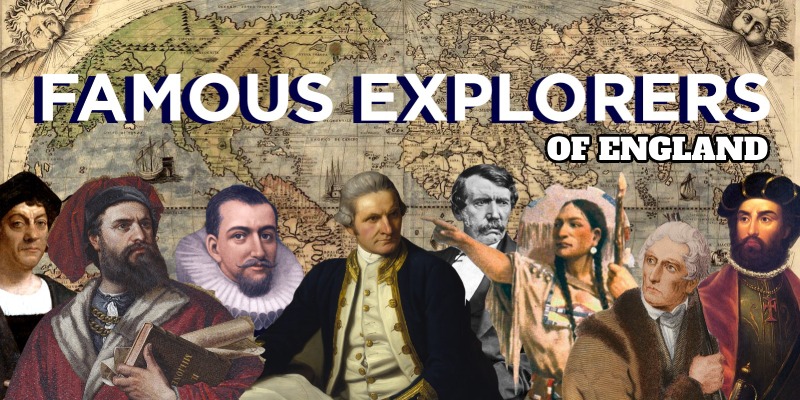Famous Explorers Of England – 8 Main Importance
Famous explorers of England made arduous journeys, expanding the boundaries of the world and shaping human history. Join us as we look back at the exciting adventures of England’s famous explorers and learn about their continuing importance.
The importance of famous explorers of England
The importance of famous explorers is multifaceted and has had a profound impact on various aspects of human civilization. Here are several key points highlighting their significance:
Expansion of Geographic Knowledge
Famous explorers have played a crucial role in expanding our understanding of the world’s geography. Through their journeys, they have mapped uncharted territories, discovered new lands, and provided valuable information about the Earth’s topography.
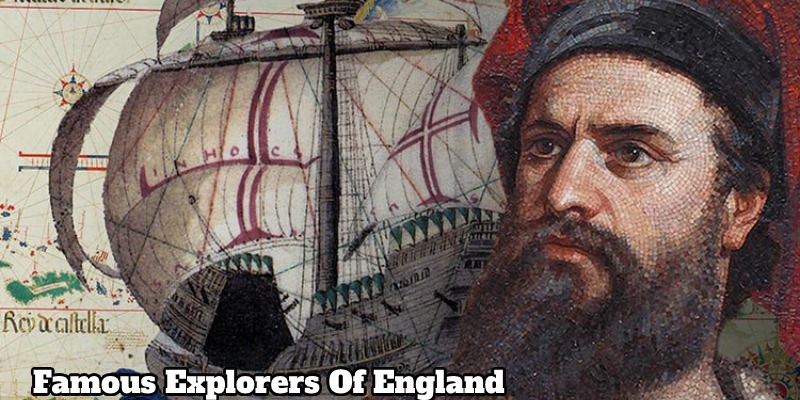
Cultural Exchange and Globalization
Explorers have been instrumental in facilitating cultural exchange by connecting different parts of the world. Their discoveries have paved the way for trade routes, leading to the globalization of cultures, ideas, and goods.
Scientific Advancements
Explorers often conducted scientific observations and experiments during their travels. Their contributions have led to advancements in fields such as botany, zoology, astronomy, and cartography. They have documented new species, celestial phenomena, and navigational techniques.
Economic Impact
The exploration of new lands has opened up trade routes and access to valuable resources. This has had a profound impact on the economic development of nations, fostering the growth of commerce, trade, and wealth.
Colonization and Empire Building
Explorers have played a pivotal role in the process of colonization and empire building. Their discoveries often led to the establishment of colonies, influencing the geopolitical landscape and shaping the course of history.
Cultural and Historical Legacy
Famous explorers have left a lasting legacy, shaping the cultural identity and historical narrative of their respective nations. Their exploits are often celebrated and remembered as integral parts of a country’s heritage.
Inspiration for Future Generations
Explorers serve as inspirations for future generations, encouraging individuals to push boundaries, challenge the unknown, and embark on quests for knowledge and discovery. Their stories often serve as motivational tales of resilience, courage, and determination.
Human Achievement and Curiosity
The endeavors of famous explorers showcase the innate human curiosity and the desire to explore the unknown. Their achievements exemplify the human spirit’s capacity for adventure, curiosity, and the pursuit of knowledge.
Famous explorers of england
England has produced numerous famous explorers whose journeys and discoveries have significantly shaped the course of history. Here are some notable explorers from England:
James Cook (1728-1779)
Renowned for his voyages in the Pacific Ocean, Captain James Cook is credited with mapping uncharted territories and making detailed observations of the flora, fauna, and indigenous peoples. His exploration of Australia, New Zealand, and the Hawaiian Islands greatly expanded the known world.
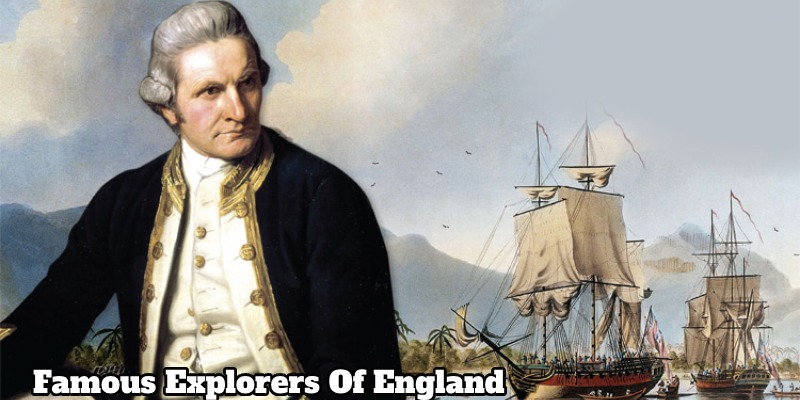
Sir Walter Raleigh (1552-1618)
An English courtier and explorer, Sir Walter Raleigh is known for his efforts to establish the first English colony in the New World, Roanoke. He also popularized tobacco in England and made various attempts to explore South America in search of the fabled city of El Dorado.
Sir Francis Drake (c. 1540-1596)
A sea captain, privateer, and circumnavigator, Sir Francis Drake played a key role in the defense of England against the Spanish Armada. He was the first Englishman to circumnavigate the globe, and his raids on Spanish ports and ships contributed to England’s naval dominance.
David Livingstone (1813-1873)
A Scottish missionary and explorer, Livingstone is often associated with his extensive travels in Africa. He played a crucial role in the abolition of the slave trade and focused on exploring and understanding the continent’s geography, leading to advancements in mapping and knowledge about Africa.
Mary Kingsley (1862-1900)
An explorer and writer, Mary Kingsley defied societal norms of her time by undertaking solo journeys to West Africa. She conducted scientific research, documented local cultures, and made significant contributions to ethnography and biology.
John Cabot (c. 1450-1500)
An Italian explorer sailing under the English flag, John Cabot is credited with discovering parts of North America, possibly the coast of Newfoundland. His voyages in the late 15th century contributed to England’s claims in the New World.
George Vancouver (1757-1798)
A British officer of the Royal Navy, Vancouver is best known for his exploration of the Pacific coast of North America. He conducted detailed surveys, mapping significant portions of the western coast, including present-day Vancouver Island.
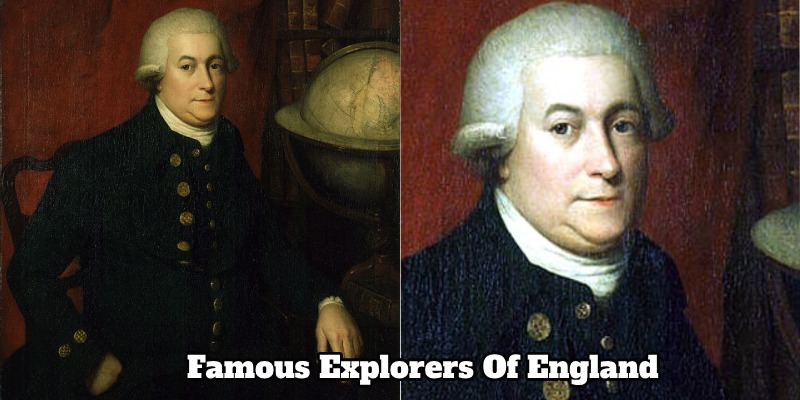
The explorer’s influence on history and culture
Explorers have exerted a profound influence on history and culture through their daring journeys, discoveries, and interactions with diverse civilizations. Here are some ways in which explorers have shaped history and culture:
Geographical Knowledge and Mapping
Explorers have significantly expanded our understanding of the world’s geography. Their mapping efforts have not only improved navigation but also laid the foundation for further exploration, trade routes, and colonization.
Trade and Economic Expansion
Exploration has often been driven by the search for new trade routes and valuable resources. Explorers’ discoveries have led to the establishment of global trade networks, contributing to economic growth, the rise of empires, and the development of commerce.
Cultural Exchange and Globalization
Explorers have served as conduits for cultural exchange between different regions of the world. Their interactions with indigenous peoples and the introduction of new goods, ideas, and technologies have contributed to the globalization of cultures.
Scientific Advancements
Explorers often conducted scientific observations and experiments during their journeys. Their contributions have advanced knowledge in various fields such as astronomy, botany, zoology, and cartography, shaping the scientific landscape of their time.
Colonization and Empire Building
Many explorers played pivotal roles in the colonization of new lands, leading to the establishment of empires. This colonization had profound and lasting effects on the cultures, languages, and societies of both the colonizers and the colonized.
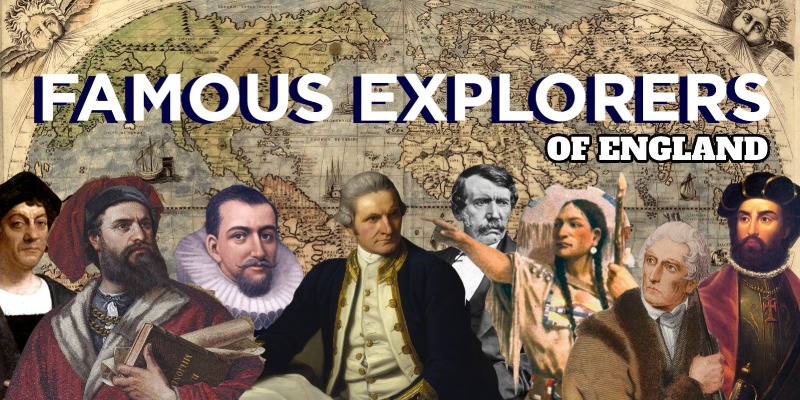
Cultural Influence and Inspiration
Explorers have inspired art, literature, and cultural narratives. Their adventures, depicted in stories, paintings, and other forms of artistic expression, have captured the imagination of generations and contributed to a sense of national identity.
Technological Transfer
Exploration often spurred the exchange of technologies between different regions. The transfer of technologies and techniques in areas such as navigation, shipbuilding, and agriculture has influenced the development of societies.
Humanitarian and Ethical Impact
Some explorers, such as David Livingstone, sought not only geographic knowledge but also to contribute to humanitarian causes. Livingstone’s efforts to combat the slave trade and promote education and healthcare in Africa had a lasting impact on ethical considerations related to exploration.
Legacy and Historical Memory
The exploits of famous explorers are often remembered and celebrated, contributing to the historical memory of nations. Their legacies shape how societies view their past, and their achievements become part of a collective historical narrative.
In conclusion
Famous explorers of england are not only distant journeys marked on the map, but also stories that stimulate the spirit of discovery and courage. They are people we still remember with reverence, and their stories of adventure remain an endless source of inspiration for those who want to face new challenges.
